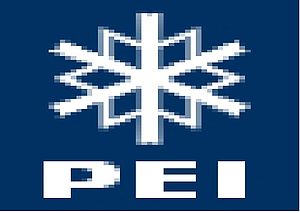
Institutional Development & Policy Framework Specialist
Poverty Eradication Initiative (PEI)

Peshawar , Pakistan
Posted Dec 02, 2023 475 views
The Institutional Development & Policy Framework Specialist will play a pivotal role in the execution of a comprehensive municipal services improvement project. The specialist will focus on evaluating and enhancing the institutional structures, policies, and frameworks of Water and Sanitation Service Companies (WSSCs) within specified divisions. The goal is to optimize service delivery, operational efficiency, and financial sustainability.
Key Responsibilities:
- Conduct a thorough review and assessment of existing institutional arrangements for municipal service delivery.
- Evaluate the adequacy and capacity of service providers, including WSSCs and Tehsil Municipal Administrations (TMAs).
- Undertake an organizational review, assessing the adequacy of staff within WSSCs (Finance, Technical, and Management).
- Evaluate the performance of WSSCs and TMAs based on Service Delivery Standards and Key Performance Indicators (KPIs).
- Identify, evaluate, and recommend options for operating WSSCs, considering divisional or city/Tehsil level structures.
- Explore restructuring existing WSSCs into regional service entities and assess the feasibility of creating new WSSCs in various cities within the division.
- Review and assess the financial performance of WSSCs and TMAs based on the past three years of operations.
- Prepare financial projections for different operating options, considering proposed investments.
- Conduct a comprehensive Capacity Needs Assessment for WSSCs, TMAs, and other relevant agencies.
- Carry out a SWOT analysis and prepare a detailed report highlighting strengths, weaknesses, opportunities, and threats.
- Develop and recommend a Financial Sustainability Plan, identifying measures to improve short and long-term cost recovery.
- Conduct a tariff appraisal study and willingness-to-pay study to inform sustainable financial models.
- Prepare the Institutional Review Report, establishing service obligations and financial targets for achieving viability.
- Assess investments at the divisional level for potential PPP projects and develop the operating business model for the selected option.
Qualifications:
- At least a Master’s degree in a relevant field and 7-9 years of professional experience (with significant experience in governance, institutional development, and civil society issues).
- Must have at least 5 year of work experience in developing local plans
- Demonstrated evaluation experience.
- Excellent personal communication and English writing skills.
- Excellent qualitative and quantitative research methods skills.
- Experience working in complex environments.
Skills
Job Details
Poverty Eradication Initiative (PEI)
Poverty is the root cause of every problem in the society, has no doubts worse affects on human life. Traditional gender roles in Pakistan especially in NWFP, which remains indulged in tribal culture, define the woman’s place as in the home and not in the workplace, and define the man as the breadwinner. Consequently, the society invests far less in women than men. Women in NWFP suffer more from poverty of opportunities throughout their lives as compared to other provinces. Economic vulnerability is a key factor in the rise of poverty in Pakistan; vulnerability also arises from social powerlessness, political instability, and ill-functioning institutions. Corruption and political instabilities such as various separatist movements in Baluchistan and Waziristan resulted in reduction of business confidence, deterioration of economic growth, reduced public expenditure, poor delivery of public services, and undermining of the rule of law. The root causes of current unrest in whole country especially FATA and FRS are linked with the absence of the opportunities for youth in all sections of life in general and particular in livelihoods. Active participation of the youth in decision making and development of the area is neglected and never given a chance to decide their fate. This made youth of the area frustrated and restless and compelled them to take part in the unhealthy activities. Poverty and the lack of modern curriculum have proved destabilizing factors for Pakistani society as these causes our youth to be exploited by religious organizations banned by the government to run schools and produce militant literature. Eradication of poverty cannot be brought about by charity, but needs first and foremost empowering the poor, focusing on women, and tapping their tremendous potential. Poverty Eradication Initiative (PEI) is a non-political, non-partisan and non-profit organization working as a facilitator to initiate and sustain women and children oriented developmental p















